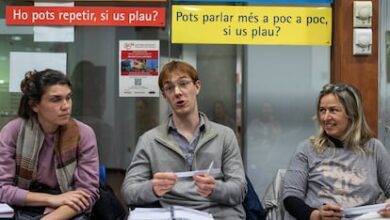
A new political crisis has erupted in the Spanish parliament: the Junts per Catalunya party has announced it will cease all cooperation with Pedro Sánchez’s government. Catalan deputies will no longer support any legislation put forward by the executive branch. This decision marks a dramatic turn for the country’s political landscape and could have serious consequences for the work of Congress.
An internal Junts party vote held last week in Perpignan, France, cemented their hardline opposition course. The party leadership, headed by Carles Puigdemont, has abandoned its previous strategy of negotiations and compromise. From now on, Junts will not discuss the details of legislation in advance and will keep its position secret until the vote itself. This means the government loses one of its key partners, which it relied on to secure a majority.
This move is especially significant amid the rivalry between Junts and another Catalan force — Esquerra Republicana. Issues related to regional funding, the reform of the Fondo de Liquidez Autonómica (FLA), and efforts to combat illegal activities are now at risk. Without Junts’ support, the chances of passing these initiatives plummet, as the parliamentary majority that ensured stability has effectively collapsed.
The party has already introduced amendments opposing 25 bills proposed by the government and has no plans to vote for another 21 currently under consideration. Among them are key issues for Catalonia, such as the supervision and regulation of marine fishing. In September, Junts representatives in the Catalan parliament already accused the socialists of ignoring the problems faced by local fishermen.
Impacts on key reforms
In the coming months, parliament must address several initiatives that previously seemed nearly approved. Among them is the cancellation of autonomous community debts, which would allow Catalonia to get rid of almost 20% of its liabilities. This measure requires Junts’ support, but the party is demanding a total write-off, not the partial solution proposed by the government.
Other social projects are also under threat, such as expanded rights for workers suffering bereavement and new support measures for patients with serious illnesses. The leader of the left-wing coalition Sumar has already accused Junts of undermining workers’ interests, but the party is only ready to back individual measures not included in the overall legislative package.
The Catalan factor and political struggle
Junts’ decision is driven not only by disagreements with the central government, but also by an internal struggle for influence within Catalonia. The party seeks to demonstrate its principles and independence to voters, especially amid rivalry with Esquerra Republicana, which supports some government initiatives. As a result, the Catalan issue has once again come to the forefront of national politics, and the fate of many reforms now depends on whether parties can find new ways to cooperate.
The current situation could lead to a prolonged standoff in parliament and even force the government to rethink its priorities. In the coming days, it will become clear whether Sánchez can find alternative ways to move his bills forward, or whether the country will enter yet another phase of political instability.












